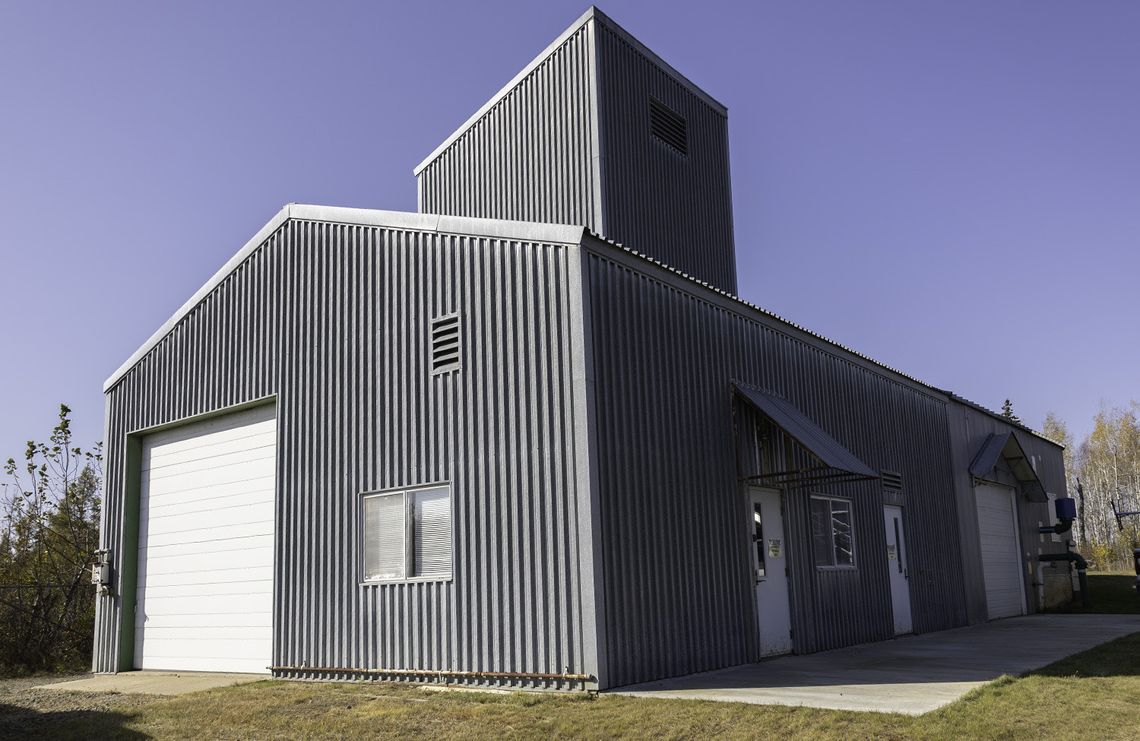Facing stringent mercury limits, aged infrastructure, and the need to accommodate growth, the City began planning for improvements in 2014 and completed construction in 2024. Overall, the city of Babbitt secured over $12 million in grants to pay for the $18 million dollar project.
The Babbitt wastewater facility was an old facility with many buildings and equipment that had reached their life expectancy.
To address the minimization of mercury discharged into Lake Superior, the wastewater facility was required to meet a mercury effluent limit in their treated wastewater of 1.8 ng/L.
To address the low mercury limit, a membrane bioreactor was installed that uses submerged, hollow fiber membranes with 0.04 micron openings for filtration of wastewater effluent. Pumps draw water through the small pore openings in the membranes and leave behind microorganisms and mercury.
Not only does this treatment technology filter mercury from the wastewater, but it also filters many other metals and nutrients for an overall cleaner treated effluent.
The MBR system was designed for a future MBR to be installed when the facility needs to handle larger flows than what is currently designed for.
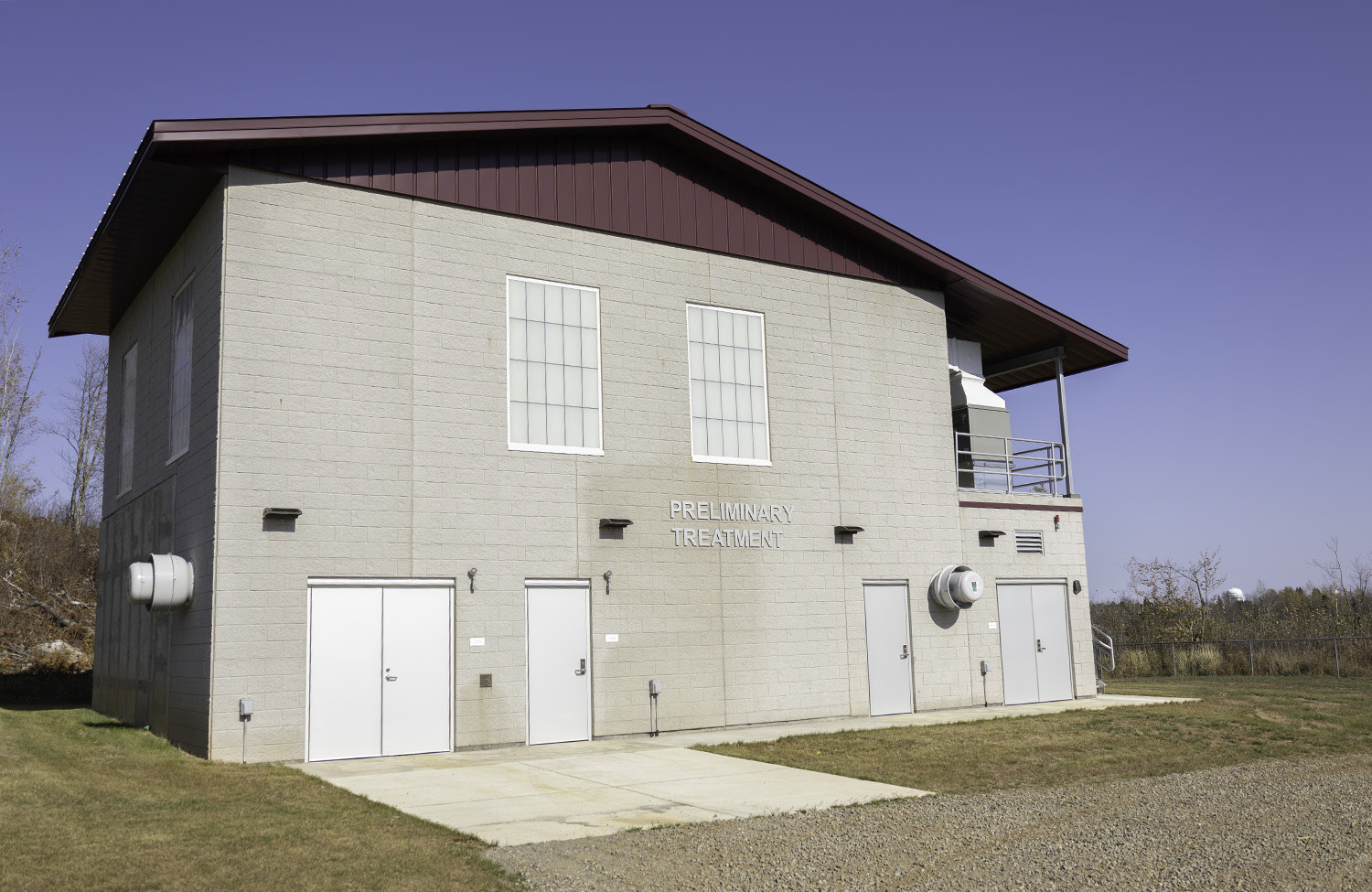
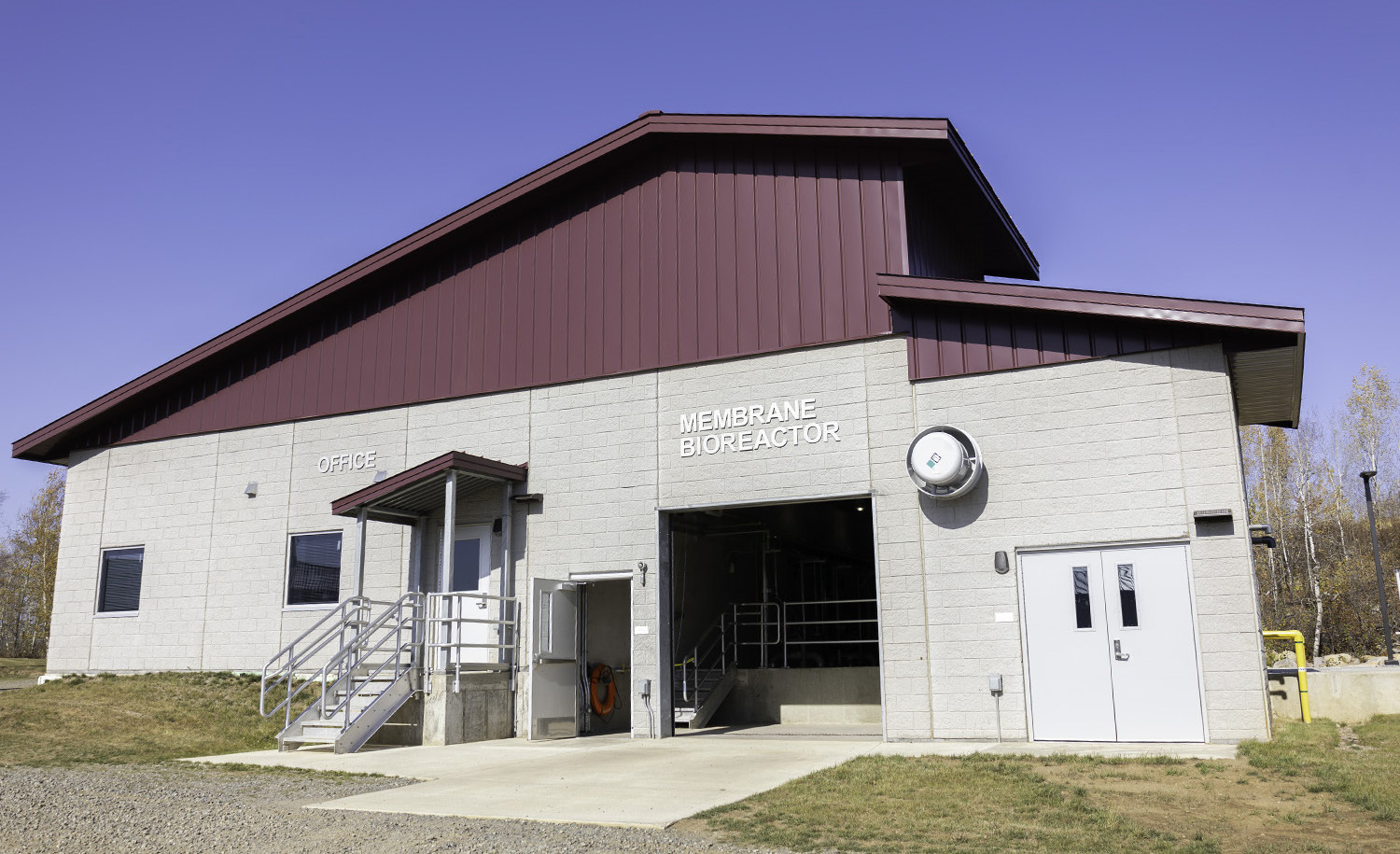
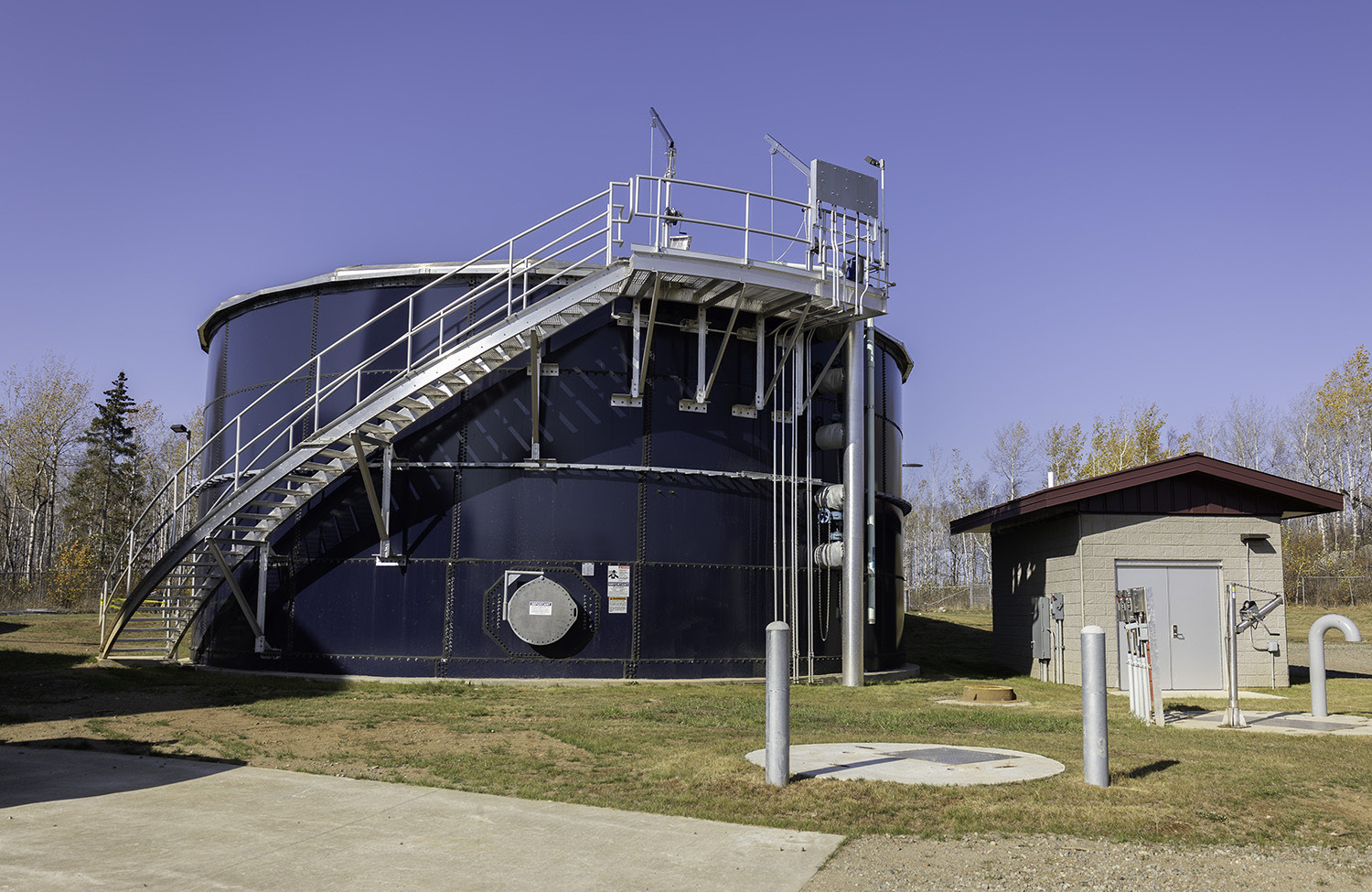
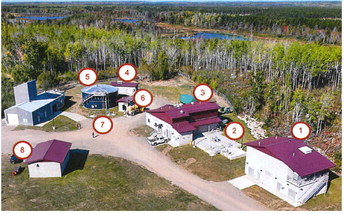
The wastewater process includes: 1. Pretreatment Building, 2. Aeration Tanks, 3. Membrane Bioreactor Building, 4. Aerated Sludge Tanks, 5. Sludge Storage Tank, 6. Sludge Transfer Pump Building, 7. Plant Recycle Lift Station, 8. Garage.
.jpg)
